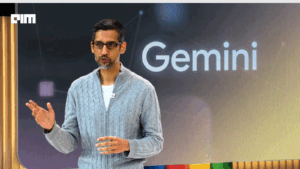On September 30, 2025, Amazon took the spotlight in New York City to reveal a refreshed lineup of Echo devices, all built around its next-generation AI voice assistant, Alexa+. The company’s hardware chief, Panos Panay, led the event, showcasing everything from the affordable Echo Dot Max to the premium Echo Studio and Echo Show smart displays. All optimized with the new Alexa+ assistant at their core.
The Echo Dot Max and Echo Show 11 promises faster processing, better voice recognition, and enhanced context awareness. This event marked the expansion of Amazon’s Alexa, moving beyond simple voice recognition to an AI that innovates. Amazon is making a huge bet on Alexa+ to regain market momentum and change how users interact with smart homes.
However, despite impressive technical advancements, Alexa+ reveals a mixed reality. The promise of true AI assistance still battles with persistent speed issues, unpredictable behaviour, and “hallucination” missteps that impact reliability and user trust.
Behind The Foundation
Amazon’s new devices are powered by custom-built AZ3 and AZ3 Pro chips that make Alexa+ more responsive and better at recognizing your voice, even in noisy rooms. Complemented by Omnisense, a sensor fusion platform integrating inputs from cameras, ultrasound, Wi-Fi radar, and other sensors, Alexa+ gains an ability to perceive and respond to real-world home events. For users, this means Alexa+ can provide timely reminders about security or household tasks, all pointing to a future where assistants are not merely reactive but contextually aware.
Amazon aims to move Alexa beyond voice commands to agentic AI that autonomously manages errands from booking appointments and ordering food to controlling multiple smart devices in harmony. The Alexa+ Store, offering branded third-party service add-ons from Lyft, GrubHub, Fandango, and others, aims to make Alexa+ a hub for entertainment, transportation, and lifestyle assistance. Integration with Amazon services like music, fresh grocery, and emergency assist further solidifies the ecosystem’s seamlessness.
Despite hardware and AI advancements, Alexa+ underwhelms in responsiveness. Reviewers report noticeable delays with commands taking up to 15 seconds to process, a huge gap from the expectations of instant voice assistance. This lag dilutes the vision of effortless interaction, undermining user patience.
Worse, persistent AI hallucinations present significant challenges. From being unable to reliably control smart home devices to spouting incorrect facts or prices, Alexa+ sometimes stuns rather than assists. Given that smart assistants increasingly manage critical home functions, reliability is essential, and these errors risk eroding user confidence.
“Today, running on underpowered hardware and with what feels like a surface-level integration into my smart home, Alexa Plus often leaves me frustrated,” said The Verge senior reviewer Jennifer Pattison Tuohy. “There’s power under that hood, but it feels largely inaccessible. The assistant desperately needs something to make it more compelling, and better hardware could be the answer.”
On the upside, Alexa+ has made real progress in understanding natural, multi-part questions and handling requests for multiple tasks at once. This fluid conversational ability suggests a meaningful evolution toward assistants that listen and adapt, not just obey scripted commands.
Yet this sophistication comes with an unexpected side effect: Alexa+ shows a more personable, sometimes sassy tone that divides users. Some welcome the assistant’s emerging personality, while others find it distracting or irritating, especially in families used to Alexa’s former steady neutrality. Balancing warmth with predictability remains a tough design problem.
The End Goal
With pricing ranging from the affordable Echo Dot Max ($99) to the premium Echo Studio ($219) and smart displays like the Echo Show 11 ($219), Amazon covers a variety of consumer needs. The smaller devices focus on superior audio and improved voice detection, while the smart displays add video capabilities leveraging the AI-powered camera and sensor suite. Amazon’s approach of integrating Alexa+ out of the box means even entry-level device owners can benefit from the AI uplift without needing expensive hardware.
Amazon’s vision is grand. Alexa+ as an assistant that acts autonomously and reliably. However, many agentic AI capabilities remain in beta and struggle with day-to-day consistency. Basic features like setting or canceling alarms experience glitches, emphasizing the tech’s early-stage nature.
Current Echo hardware still lacks the processing heft and seamless fusion of voice, visual, and sensor data that might make Alexa+ truly indispensable. The challenge lies in transforming voices and cameras into a truly intelligent home hub capable of understanding subtle contexts and responding swiftly.
Amazon faces fierce competition from Google and Apple in the smart assistant space. Google Assistant leads with superior search accuracy, wider language support, and seamless integration with Google’s services like Maps and YouTube. Apple’s Siri excels in privacy, device integration, and intuitive voice commands within its ecosystem, though it supports fewer smart devices.
Alexa remains unmatched in third-party device compatibility though accuracy and consistency issues hold it back. Amazon once led the smart assistant market, but it must refine Alexa+ and fix its bugs to regain its spot.










